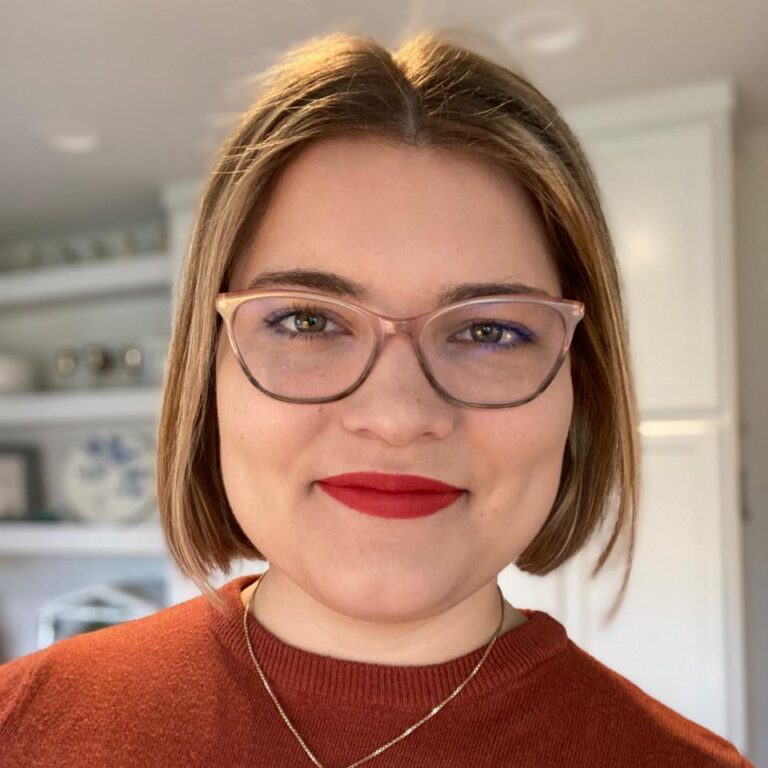The gravestone wasn’t otherwise remarkable. It stood by itself at a bend in the road, tucked far into the lower, forested edges of the cemetery. The sun was beginning to set on this Sunday evening, creating a dusky darkness within the trees. I hadn’t traipsed through this part of the cemetery yet, so I slowed my walk, looking at the headstones as I passed, observing names and dates and titles.
The family name on this stone was big and pronounced at the top: HAGUE.
And then, below, something peculiar.
There was no date of death. Which wouldn’t be all that peculiar in and of itself – many people who share a headstone with a spouse have the names of both spouses engraved when one of them dies, and that engraving includes the birth date of the still-living spouse, leaving the date of death blank. In this case, his wife was listed on the tombstone – “Anna, his wife: 1864-1922.”
But the blank date of death was peculiar given that John Hague was born in 1849.
I sent a picture to my sister-in-law.
“Does this mean he’s still alive??!”
“Oh yes” she responded immediately. “I feel very committed to that idea.”
I mentally ruled out “lived to be 172” from the list of possibilities.
But what other possibilities were there? I started to imagine the life of John Hague. Did he and Anna divorce after the tombstone was created, and so they could no longer be buried together? Did he remarry after her death and feel guilty? Did he move far away and the family couldn’t afford to have the body brought back to Grand Haven?
I did a quick google search when I got home, pulling up the cemetery records. There he was. John Hague. Husband of Anna. Born 1849, died 1938. Someone, I guess, had just never gotten around to finishing the headstone.
I was a bit disappointed. I was fully prepared to spend the whole of my day off in the library and public museum, looking for traces of John Hague, trying to find out what had happened to him. What life he had lived, where he had gone, which of the possibilities had been played out.
Instead I spent my day off at the beach. Wondering, still, who John Hague was, who he might have been.
That morning I had read an op-ed by Kate Bowler, published last weekend in the NY Times – “One Thing I Don’t Plan to Do Before I Die Is Make a Bucket List.” Adapted from her new book, No Cure for Being Human, the essay is an exploration of the boundaries of life, the finitude challenging our notions of endless possibility. Bowler remembers all the lives she dreamed up for herself as a child, the different roads lying ahead of her.
“I did not understand,” she writes, “that one future comes at the exclusion of all others. Everybody pretends that you only die once. But that’s not true. You can die a thousand possible futures in the course of a single, stupid life.”
The future of playing professional baseball dies with the acceptance of a job at a law firm.
The future of cycling around the world dies with the birth of a first child.
The future of becoming a famous violinist dies with the growing interest in medicine.
It’s fun sometimes to look back at key moments and wonder how my life might have been different had I traveled an alternate route. If I had become a Junior Ranger in Ontario’s Provincial Parks instead of attending Calvin Seminary’s Facing Your Future; if I’d gone to the small Christian college in New Brunswick instead of to Calvin; if I’d gone back to working at camp the summer before junior year, instead of packing my bags and heading to the Netherlands. Would I be a pastor? Would I have met the man I now love?
Looking ahead and wondering at the result of choices we’re facing, wondering what the future might hold, is also sometimes fun, but is almost always a little anxiety-inducing. Are we headed down the right path? Making the right choice? Are we about to die to one future, a future we had once dreamed about, in order to chase another?
And of course, we can never really say. We hope we’ll be able to say, with all the self-confidence of Frost’s travelling man, that the road we took made all the difference. But Frost wrote that with a wink and a grin, knowing how desperate we are to be the masters of our own story. The truth is we’re filled with thousands of possible lives but have just the one to live, filled with tremulous steps, one after another. Who knows what we’ll think when we look back, ten, twenty, fifty years from now, on the choices we’re making today? All I know is we have to keep making them.
“Our lives are unfinished and unfinishable,” writes Bowler. “We do too much, never enough and are done before we’ve even started. We can only pause for a minute, clutching our to-do lists, at the precipice of another bounded day. The ache for more – the desire for life itself – is the hardest truth of all.”
But met by the greatest truth of all: the one thing about our future that is certain is that it’s held by God, and through his mercy, there is, in fact, much life to be had, and no end date to be etched on the stone.


